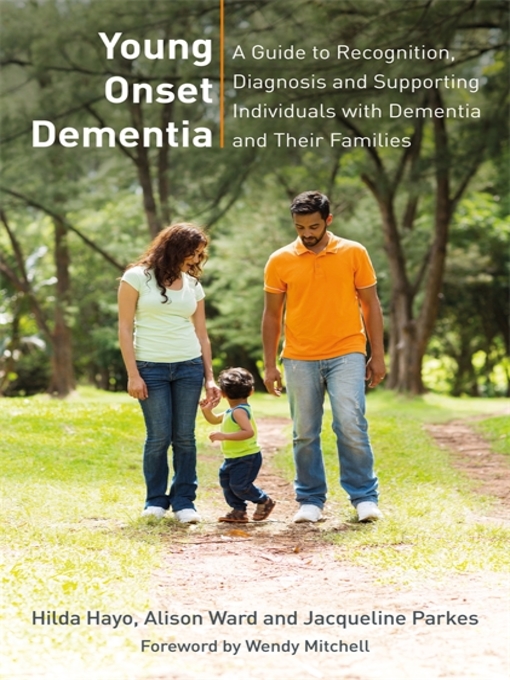Providing key information and insight into the experiences of people living with a diagnosis of young onset dementia, this book will increase the knowledge and skills of health and social care professionals in the early recognition, diagnosis and support of young people with dementia and their families.
The book explores the experiences of people living with a diagnosis of young onset dementia through detailed case studies, and gives learning points to implement in practice for the better provision of appropriate support and care. It explains the need for adapting services which are often designed for older people, and how the complicated diagnostic process can lead to misdiagnosis among younger people. Key issues are considered, including at-risk groups, work and dealing with potential loss of employment, changes in personal and family relationships, readjusting life expectations and plans, and social isolation.
-
Description
-
Creators
-
Details

- Hilda Hayo - Author
- Alison Ward - Author
- Jacqueline Parkes - Author
- Wendy Mitchell - Author of introduction, etc.
Kindle Book
- Release date: February 21, 2018
OverDrive Read
- ISBN: 9781784503833
- File size: 1505 KB
- Release date: February 21, 2018
EPUB ebook
- ISBN: 9781784503833
- File size: 1505 KB
- Release date: February 21, 2018
Providing key information and insight into the experiences of people living with a diagnosis of young onset dementia, this book will increase the knowledge and skills of health and social care professionals in the early recognition, diagnosis and support of young people with dementia and their families.
The book explores the experiences of people living with a diagnosis of young onset dementia through detailed case studies, and gives learning points to implement in practice for the better provision of appropriate support and care. It explains the need for adapting services which are often designed for older people, and how the complicated diagnostic process can lead to misdiagnosis among younger people. Key issues are considered, including at-risk groups, work and dealing with potential loss of employment, changes in personal and family relationships, readjusting life expectations and plans, and social isolation.

-
Details
Publisher:
Jessica Kingsley Publishers
Kindle Book
Release date: February 21, 2018
OverDrive Read
ISBN: 9781784503833
File size: 1505 KB
Release date: February 21, 2018
EPUB ebook
ISBN: 9781784503833
File size: 1505 KB
Release date: February 21, 2018
-
Creators
- Hilda Hayo - Author
- Alison Ward - Author
- Jacqueline Parkes - Author
- Wendy Mitchell - Author of introduction, etc.
-
Formats
Kindle Book
OverDrive Read
EPUB ebook
-
Languages
English
Why is availability limited?
×Availability can change throughout the month based on the library's budget. You can still place a hold on the title, and your hold will be automatically filled as soon as the title is available again.
The Kindle Book format for this title is not supported on:
×Read-along ebook
×The OverDrive Read format of this ebook has professional narration that plays while you read in your browser. Learn more here.
